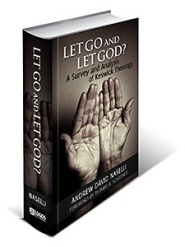DVD Review - What's in the Bible?
[amazon B003C1RN0Y thumbnail] [amazon B003C1RN0Y] [amazon B003C1RN0Y binding] |
My dad recently came home from a writers’ conference where he picked up a book and a new DVD for us to proof for our children. The book was entitled [amazon 1595551220] by the creator of Veggie Tales, Phil Vischer (more commonly known as the voice of Bob the Tomato). Before reading the book, I looked at the DVD case which was entitled . While I was cautiously excited that Phil Vischer had created a new company called Jelly Fish Labs, I was also concerned. It looked as if the series was going to be a really low-budget, thrown together show. Instead of computer animated characters It featured puppets that didn’t look especially engaging—at least to an adult. That wasn’t my only concern, however.
I confess that, more often than not, I am a Veggie Tales fan. I’ll even admit that I’ve watched Veggie Tales video without children present and have actually enjoyed the experience immensely. However, nobody has to see many episodes to realize that Veggie Tales is a bit lacking in spiritual depth. The show teaches good biblical principles to children in a creative, funny, and clean way that’s entertaining for everyone—so I am not complaining. I own many of the Veggie Tales stories and frequently hum some of Larry’s Silly Songs. Plus, Veggie Tales DVDs reinforce the values and principles that my wife and I are teaching our children—and our children really enjoy them. But, honestly, how much insight into Scripture could my kids really glean from a Bible-overview from the Veggie guy?
 Compiled from Dr. Warren VanHetloo’s “Cogitations,” July, 2010.
Compiled from Dr. Warren VanHetloo’s “Cogitations,” July, 2010. Dr. Andrew David Nasellli (a.k.a. Andy Naselli), has completed some excellent doctrinal and historical study in the area of sanctification. How do believers grow to be like their Lord? What should they expect the experience of growing in holiness to be like?
Dr. Andrew David Nasellli (a.k.a. Andy Naselli), has completed some excellent doctrinal and historical study in the area of sanctification. How do believers grow to be like their Lord? What should they expect the experience of growing in holiness to be like?
Discussion